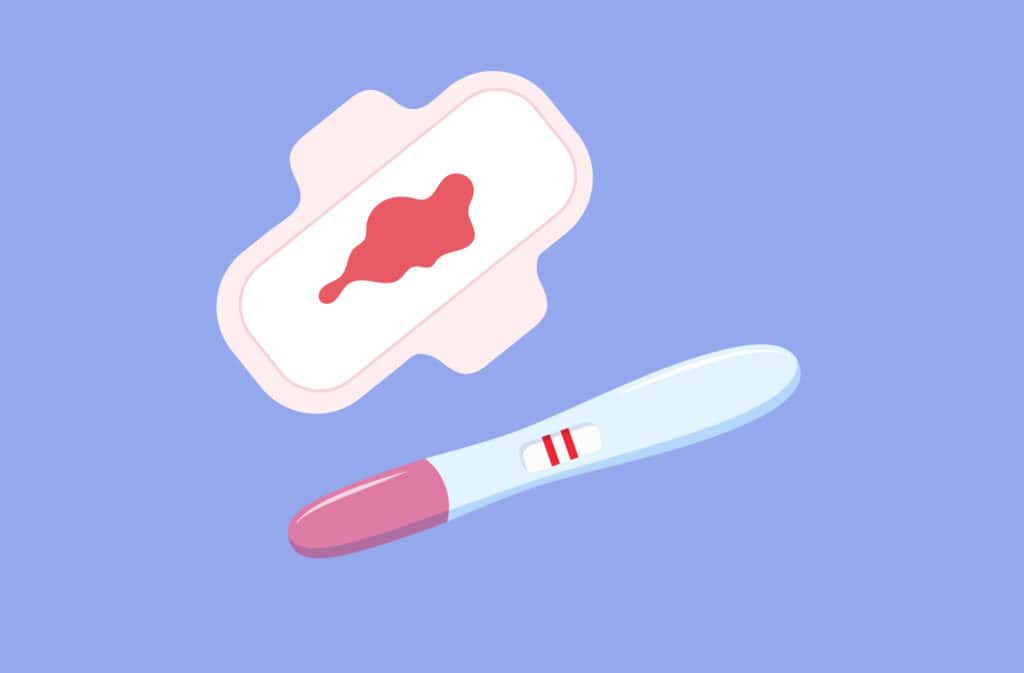Femia > Health Library > Getting Pregnant > Trying to conceive > Can Mucinex help you get pregnant? How to use it for better fertility
Can Mucinex help you get pregnant? How to use it for better fertility

- Updated Feb 11, 2025
- Published
CRAFTED BY HUMAN
Crafted by human At Femia, we provide accurate and up-to-date information at every stage of your journey, from trying to conceive, pregnancy and postnatal support. All content is created by a real person based on in-depth research and own professional experience. Femia ensures that you will receive expert advice, strict accuracy and a personalized approach from our authors/medical experts. Learn more about our editorial policy.
FACT CHECKED
Fact checked At Femia Health, we maintain the highest standards of editorial excellence in delivering content focused on helping you conceive, guiding you through pregnancy, and supporting you postpartum. Explore our content review principles to learn how we ensure the accuracy and quality of our health and lifestyle tips for every stage of your journey.
Mucinex is an expectorant that works by thinning and loosening mucus around the body. Whilst its primary target is the respiratory system, it also affects cervical mucus. Currently, there is only limited scientific evidence to back up claims that Mucinex increases fertility. However, for women who suffer from thick, hostile cervical mucus, taking Mucinex to thin it and allow more sperm to pass into the uterus could increase their chances of conceiving.
Note: Anyone who is considering starting Mucinex for fertility should check with their healthcare provider whether this medication is suitable for them and to develop a personalized fertility plan.
Have you heard of the drug Mucinex? If you’ve ever had a cough or cold, then chances are you’ve come across this over-the-counter medication. Officially used to help relieve the symptoms of chesty coughs and colds, it has recently hit headlines for its apparent ability to increase fertility.
If you’re interested in fertility or are trying to get pregnant, you may have come across claims from numerous women that taking Mucinex has helped them to get pregnant. The “Mucinex pregnancy trick” has recently been doing rounds on social media, with many women claiming that Mucinex helped them to conceive, even when they were struggling.
Read on to find out what the science says and whether there is any truth behind the claims.
What is Mucinex
What is guaifenesin and how does it work?
In 2020, a TikTok video went viral claiming that taking Mucinex D (guaifenesin and pseudoephedrine), a cough syrup and decongestant, could help improve your chances of getting pregnant. Mucinex is an expectorant that contains the chemical compound guaifenesin. Medications containing guaifenesin are most commonly used to treat the symptoms of coughs and colds. Expectorants work by thinning and loosening mucus, making it easier for you to clear respiratory secretions when coughing.
👉Find out more: Why am I not getting pregnant? Understanding common reasons for conception challenges
Link between guaifenesin and fertility
Guaifenesin, the active ingredient in medications like Mucinex, is believed to improve fertility by thinning cervical mucus. Some women use guaifenesin to enhance the quality of their cervical mucus, particularly if they have difficulty producing the right consistency for sperm to travel through.
However, the evidence linking guaifenesin directly to improved fertility is limited. Some small studies and anecdotal reports suggest that guaifenesin may help increase cervical mucus production, potentially aiding in conception. Still, it is not a guaranteed or widely endorsed method by fertility experts. If you’re considering using guaifenesin to improve your fertility, it’s important to speak with your healthcare provider to determine whether it’s suitable for you and your specific situation.
Does Mucinex help you get pregnant
Mucinex (guaifenesin) works by reducing the viscosity (thickness) of mucus. While it is primarily used to thin mucus in the respiratory tract, it can also affect other mucus in the body, including cervical mucus. Here’s how it may influence fertility:
1. Effect on cervical mucus
- Throughout the menstrual cycle, cervical mucus changes in both quantity and thickness.
- During the “fertile window” (the six days around ovulation), cervical mucus becomes thinner and more watery, allowing sperm to move through it and reach the egg.
- Outside the fertile window, cervical mucus is thicker and sticky, which serves as a barrier to bacteria, viruses, and sperm.
2. Cervical mucus issues and fertility
In some women, cervical mucus remains thick even during the fertile window, preventing sperm from passing through the cervix to reach the egg. This is estimated to be a factor in 5-10% of infertility cases.
3. How Mucinex might help
Mucinex contains guaifenesin, which can help thin cervical mucus, potentially making it easier for sperm to pass through the cervix. By improving cervical mucus quality, Mucinex may enhance sperm motility and increase the chances of conception.
Important considerations
While some women use Mucinex for fertility, evidence supporting its effectiveness in improving cervical mucus is limited. If you’re considering using Mucinex to improve your fertility, it’s essential to consult with your healthcare provider to see if it’s appropriate for you.

Mucinex for fertility: What does the evidence say?
Whilst the internet is full of anecdotes claiming that the Mucinex pregnancy trick really works, very few scientific studies exist to back this up. Recent, good-quality studies looking into the effects Mucinex may have on fertility simply haven’t been conducted.
One study, undertaken in 1982, has directly evaluated the effect that guaifenesin has on fertility. This study looked at 40 couples who were having difficulty conceiving due to hostile cervical mucus. It examined sperm motility (movement) through the cervical mucus before and after the women took guaifenesin and found that 65% of women showed an improvement in the ability for sperm to move through the cervical mucus.
In the 10 patients whose only known cause of infertility was hostile mucus, eight became pregnant within 2.5 months. Even in couples who had multiple factors affecting their fertility, a significant number of them were pregnant within six months.
This study concluded that whilst more research was needed, guaifenesin may improve cervical mucus and fertility. It is important to note, however, that only 40 patients were included in the study. Important information like age and lifestyle factors that affect fertility were not discussed, and there was no control group.
To establish whether or not guaifenesin significantly boosts fertility and the chances of getting pregnant, larger, more rigorous studies need to be performed.
What do the experts say?
Fertility experts frequently prescribe guaifenesin “off label” for women undergoing fertility treatment with clomiphene (Clomid). In a significant proportion of women, the use of clomid is known to adversely affect cervical mucus, making it thicker and harder for sperm to penetrate. Medications such as Mucinex can help counteract this unwanted side effect and increase the chances of pregnancy.
There is currently no consensus amongst experts as to whether or not drugs like Mucinex can improve the chances of getting pregnant for the average woman. However, there is no evidence to suggest that it hurts fertility, and therefore, it is generally accepted that there is little harm in trying it for most. Still, it is advised that anyone considering starting Mucinex for fertility reasons should discuss it first with their healthcare provider.

How to use Mucinex to get pregnant
Mucinex has not been licensed for use to improve fertility; therefore, taking it to boost your chances of getting pregnant is considered an “off-label” use. When using a medication outside of its recommendations, it is important that you first discuss the risks and benefits for you with your healthcare provider.
When to take Mucinex to get pregnant?
There is no official advice about when and how to take Mucinex to increase chances of pregnancy.
In the study that looked at whether guaifenesin increases fertility, participants took guaifenesin from day five of their menstrual cycle until ovulation. Additionally, fertility experts prescribing guaifenesin to thin cervical mucus recommend starting Mucinex five days before ovulation and continuing until the day of ovulation, taking it for a total of six days.
However, please don’t attempt this on your own, as it can be harmful. Anyone considering using Mucinex for fertility should consult with their healthcare provider to determine if this medication is suitable for them and to develop a personalized fertility plan.
How long to take Mucinex to get pregnant?
If you’re considering starting Mucinex to help you get pregnant, then it is recommended that you first consult your healthcare provider. They will be able to give you personalized advice.
Safety and considerations
If you’re thinking about starting Mucinex to help you get pregnant, consult a healthcare provider first to see if this medication is suitable for you.
Whilst there have been no reported safety concerns around Mucinex and fertility, the normal side effect profile and contraindications remain.
Common side effects from Mucinex include headache, nausea, and vomiting. For a full list of side effects, refer to the medication information leaflet, and report any unusual problems or side effects when taking this medication to your healthcare provider.
You should not take Mucinex if:
- You have ever had an allergic reaction to any medication containing guaifenesin;
- You have a respiratory condition such as asthma, emphysema, or chronic bronchitis;
- You’re already taking a cough or cold medication;
- You are already pregnant;
- You have kidney disease;
- You suffer from phenylketonuria.

Taking Mucinex during pregnancy
The safety of guaifenesin-containing products has not been tested in pregnancy. The risk of miscarriage or birth defects are not known; however, animal studies have shown a link between guaifenesin and fetal risk. The FDA has classed it as a category C risk in pregnancy, meaning risk cannot be ruled out. Pregnant women should not take Mucinex during pregnancy unless it has been discussed with their healthcare provider and the risks versus benefits.
Risks, limitations, and professional advice
While Mucinex (guaifenesin) is sometimes used to improve cervical mucus, there are a few important considerations:
- Limited evidence: The effectiveness of Mucinex in improving fertility is not well-established in scientific research. While it may help some women with thick cervical mucus, it is not a guaranteed solution for all fertility issues.
- Consult your healthcare provider: Always consult with a healthcare provider before using Mucinex for fertility. Your doctor can help assess whether this approach is suitable for your situation and recommend a treatment plan based on your specific needs.
- Possible side effects: Mucinex can cause side effects such as dizziness, nausea, and digestive upset in some individuals. It’s important to monitor for any adverse reactions.
- Not a cure for infertility: Mucinex is not a cure for infertility and should be considered as part of a broader fertility strategy, which may include lifestyle changes (diet, exercise, habits), taking fertility supplements, medical treatment, and fertility tracking.
Questions from the Femia community
Does Mucinex really help you get pregnant?
While there are several anecdotal reports of success, scientific evidence is currently limited. It can thin cervical mucus, and therefore, could theoretically help women who have hostile cervical mucus to conceive. If you’re considering starting Mucinex to help you get pregnant, it’s best to consult with a healthcare provider.
Can I take Mucinex every month to try to conceive?
Yes. However, you should discuss it with your healthcare provider first to ensure that it is safe and appropriate for your situation.
Is there a specific type of Mucinex to use for fertility?
Yes, use the plain guaifenesin formula that has no added decongestants or other medications.
Can Mucinex improve male fertility?
There has been one reported case study in a male with low sperm count and poor motility where guaifenesin was found to increase both sperm count and sperm motility; however, it is unclear why this happened.
Mucinex is known to primarily affect cervical mucus in women, but men should discuss any concerns with their healthcare provider.
Are there any risks to taking Mucinex while trying to conceive?
Generally, Mucinex is considered safe, but always consult your healthcare provider to be sure.
The bottom line
Mucinex contains the active ingredient guaifenesin, which thins and loosens mucus in the body. Whilst it is primarily used as an expectorant to relieve the symptoms of coughs and colds, it has gained attention for its proposed ability to increase fertility and help women get pregnant.
One small study found that in women with hostile cervical mucus, medications such as Mucinex did improve their chances of conception. However, larger studies are required before the link between guaifenesin and fertility can be adequately established.
Women who are looking to increase their chances of pregnancy should speak to their healthcare provider. A medical professional should be able to advise whether taking Mucinex is a suitable option and discuss a personalized plan to help improve their fertility and maximize chances of pregnancy.
References
- Albrecht, Helmut H., et al. ‘Role of Guaifenesin in the Management of Chronic Bronchitis and Upper Respiratory Tract Infections’. Multidisciplinary Respiratory Medicine, vol. 12, no. 1, Dec. 2017, p. 31. Springer Link, https://doi.org/10.1186/s40248-017-0113-4.
- Check, Jerome H., et al. ‘Improvement of Cervical Factor with Guaifenesin’. Fertility and Sterility, vol. 37, no. 5, May 1982, pp. 707–08. ScienceDirect, https://doi.org/10.1016/S0015-0282(16)46287-4 .
- Clomiphene: MedlinePlus Drug Information. https://medlineplus.gov/druginfo/meds/a682704.html . Accessed 29 May 2024.
- ‘Cold & Flu Product Ingredients | Mucinex’. Mucinex USA, https://www.mucinex.com/pages/our-ingredients . Accessed 29 May 2024
- Curlin, Marija, and Danijel Bursac. ‘Cervical Mucus: From Biochemical Structure to Clinical Implications’. Frontiers in Bioscience (Scholar Edition), vol. 5, no. 2, Jan. 2013, pp. 507–15. PubMed, https://doi.org/10.2741/s386 .
- Drug Summary. https://www.pdr.net/drug-summary /. Accessed 29 May 2024.
- Guaifenesin: MedlinePlus Drug Information. https://medlineplus.gov/druginfo/meds/a682494.html . Accessed 27 May 2024.
- McShane, Abigail, et al. ‘Mucus’. Current Biology : CB, vol. 31, no. 15, Aug. 2021, pp. R938–45. PubMed Central, https://doi.org/10.1016/j.cub .2021.06.093.
- Poon, Wayne W., and John A. McCoshen. ‘Variances in Mucus Architecture as a Cause of Cervical Factor Infertility*’. Fertility and Sterility, vol. 44, no. 3, Sept. 1985, pp. 361–65. ScienceDirect, https://doi.org/10.1016/S0015-0282(16)48861-8 .
- Randall, John M., and Allan Templeton. ‘Cervical Mucus Score and in Vitro Sperm Mucus Interaction in Spontaneous and Clomiphene Citrate Cycles’. Fertility and Sterility, vol. 56, no. 3, Sept. 1991, pp. 465–68. ScienceDirect, https://doi.org/10.1016/S0015-0282(16)54541-5 .
- Silva, Roberto, et al. ‘Is Guaifenesin Safe during Pregnancy?’ The Journal of Family Practice , no. 56, Aug. 2007, p. 8.

Discover if you can get pregnant on your period. Learn about menstrual cycle phases, fertility windows, and common misconceptions. Expert insights from Femia.

Let’s learn how two key female hormones – progesterone and estrogen – differ, how they affect different functions, and why they matter.

Discover safe and comfortable sex positions during pregnancy that enhance intimacy while accommodating bodily changes. Explore positions that prioritize comfort and intimacy, ensuring both partners feel connected and at ease.

